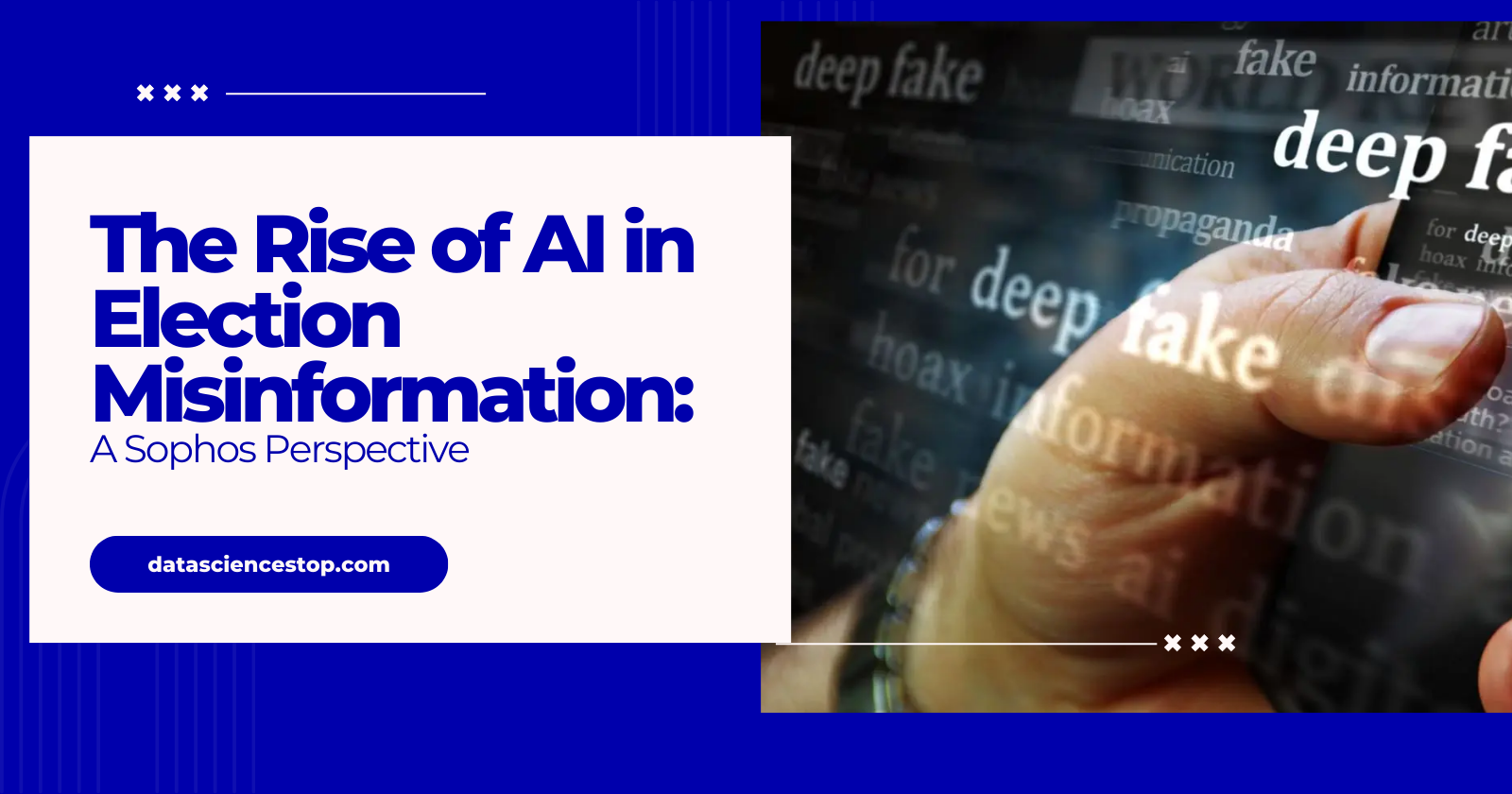The Rise of AI in Election Misinformation: A Sophos Perspective
 datasciencestop
datasciencestop
As artificial intelligence (AI) keeps getting better, new tools are being created that affect society in big ways—both good and bad. One worrisome change is how AI is being used to share fake news, especially during elections. Sophos, a top company in cybersecurity, has pointed out that AI-made false information is becoming a bigger danger to how elections work around the world. As AI gets more advanced, its power to make, spread, and focus on fake news is becoming a major worry for governments, news groups, and people who protect against cyber threats.
How AI Tools Are Used to Spread Fake News
Artificial Intelligence (AI) can create content, like deepfake videos, which is a big concern when it comes to misleading people during elections. Deepfakes are videos made by AI that change real footage to make it seem like someone said or did something they didn't. By copying the voice, looks, and actions of politicians, deepfakes can trick voters into believing false information.
Additionally, AI is used to make very realistic articles and posts on social media that look like they come from real news sources. These AI tools can create fake interviews, news stories, and even entire false stories meant to hurt political rivals or spread wrong ideas. Once these fake articles are made, they can quickly spread on social media, reaching certain groups of people with the help of AI-driven algorithms.
AI-Driven Targeting: Amplifying the Impact
AI isn't only used to make fake content; it's also used to share it very specifically. AI-powered tools look at what people do, what they like, and their social media habits to find the best groups for certain fake news. For instance, AI can figure out which voters might be easily swayed by controversial political messages and send them false information. This very specific targeting helps those with bad intentions spread fake news more effectively, making it more likely to affect elections.
Sophos’ Warnings and Solutions
Sophos has been actively discussing the risks of AI-generated fake news. They highlight that as these tools become more affordable and easier to use, the chances of them being misused in election campaigns increase. Sophos' cybersecurity specialists caution that traditional ways of verifying facts and moderating content might not be sufficient to handle the rapid and widespread spread of AI-generated misinformation.
To address these concerns, Sophos suggests a comprehensive strategy to combat AI-generated fake news. This involves enhancing cybersecurity, developing better AI tools to identify deepfakes and misinformation, and fostering cooperation among governments, social media platforms, and cybersecurity companies. Additionally, educating the public on recognizing fake news and improving media literacy are crucial steps in fighting election-related disinformation.
Global Implication on AI
The improper use of AI to spread false information about elections has serious consequences for democracy around the world. In countries like the United States, Europe, and emerging democracies, AI-created fake news can damage people's trust in election results. If voters can't trust the information they get, the fairness of elections is questioned, which could cause political problems and social conflict. As AI tools get better, the danger of AI-made fake news during elections is becoming more important.
Conclusion
Sophos' findings show that tech companies, governments, and cybersecurity experts need to work together quickly to protect democratic processes. By using strong detection methods, improving media education, and encouraging international teamwork, the effects of AI-driven misinformation can be reduced, making sure that elections are fair and clear in the future.
References
1.Sophos: AI tools are being used to spread fake news in elections
2.Political Manipulation with Massive AI Model-driven Misinformation and Microtargeting
3.Misinformation fueled by Gen AI threatens democratic elections worldwide, warns CSDI report
More Recent Articles
Subscribe to my newsletter
Read articles from datasciencestop directly inside your inbox. Subscribe to the newsletter, and don't miss out.
Written by
